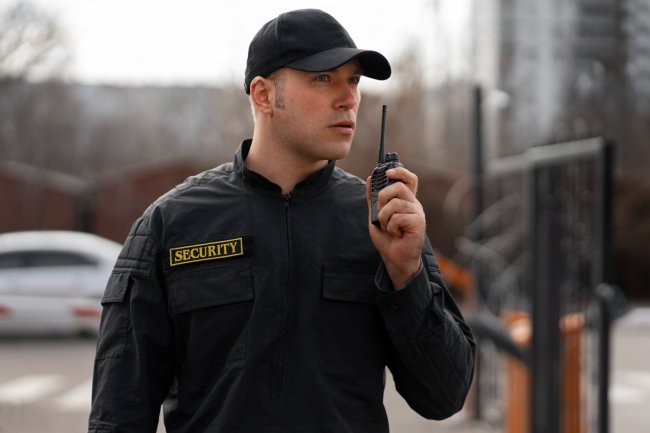The Role of a Bouncer: Responsibilities and Challenges
find the vital role of bouncer agency in Bangalore's nightlife. Get to know about their responsibilities, challenges, and the premium services offered by Zultra Group.

Introduction
In the vibrant nightlife of Bangalore, bouncers play a crucial role in ensuring the safety and enjoyment of patrons. These professionals, often the unsung heroes of clubs, bars, and events, are tasked with maintaining order and security in an environment where excitement and unpredictability are constants. At Zultra Group Services, we understand the pivotal role bouncers play, and this blog delves into their responsibilities and challenges. We'll cover what a bouncer does, the skills required, the challenges faced, and the future of this essential profession, particularly focusing on our premium "Bouncers Agency in Bangalore."
What is a Bouncer?
A bouncer is a security professional employed to ensure the safety and security of patrons in various entertainment venues. From high-energy nightclubs to exclusive private events, bouncers are integral to maintaining a safe atmosphere. They are responsible for enforcing venue policies, managing crowds, and handling conflicts. Bouncers are commonly found in:
- Nightclubs and bars
- Concerts and music festivals
- Private parties and corporate events
- Casinos and gaming venues
Key Responsibilities of a Bouncer
Bouncers Agency has a wide range of responsibilities, all aimed at ensuring the safety and enjoyment of patrons:
- Ensuring the safety of patrons: bouncers are trained to handle emergencies and prevent incidents that could harm guests.
Checking IDs and enforcing age restrictions: Ensuring that only eligible patrons enter the venue helps maintain legal compliance and venue policies.
Managing crowd control and preventing overcrowding: By monitoring the number of guests and managing the flow, bouncers prevent dangerous overcrowding.
Handling conflict and de-escalating tense situations: bouncers use conflict resolution skills to defuse potentially violent or disruptive situations.
Monitoring the premises for suspicious activity: Vigilance is key to spotting and preventing potential threats or illegal activities.
Enforcing dress codes and other venue policies: bouncers ensure that all guests adhere to the venue’s standards and rules.
Essential Skills and Qualities
Effective bouncers possess a unique blend of skills and qualities that enable them to perform their duties efficiently.
Physical fitness and strength: physical presence and the ability to handle physical confrontations if necessary.
Excellent communication skills: clear and assertive communication helps manage crowds and resolve conflicts.
Conflict resolution and negotiation abilities: skilled in de-escalating situations and negotiating with difficult patrons.
Vigilance and attention to detail: constantly monitoring surroundings to spot potential issues before they escalate.
Calmness under pressure: Maintaining composure in high-stress situations is crucial for effective conflict management.
Knowledge of legal regulations and rights: Understanding the legal framework within which they operate ensures actions are lawful and justified.
Challenges Faced by Bouncers
The role of a bouncer comes with significant challenges that require resilience and professionalism.
Dealing with aggressive or intoxicated individuals: Handling patrons who are under the influence or aggressive can be challenging and requires tact and patience.
Balancing firmness with diplomacy: ensuring compliance with venue rules while maintaining a positive atmosphere.
Managing large crowds and potential mob situations: keeping large groups under control to prevent chaos or stampedes.
Navigating legal and liability issues: understanding the legal implications of their actions and staying within the bounds of the law.
Handling false accusations or complaints: Addressing complaints and accusations professionally to protect their reputation and that of the venue.
The physical and mental toll of the job: The demands of the job can be taxing, requiring bouncers to stay physically fit and mentally resilient.
Training and Certification
Proper training and certification are vital for bouncers to perform their duties effectively and legally.
Common training programs and courses include courses in security, conflict resolution, and first aid.
Certifications and licenses required in various regions: Depending on the location, specific certifications and licenses might be required.
Importance of ongoing training and skill development: Continuous training helps bouncers stay updated on best practices and new security techniques.
Legal and Ethical Considerations:
Bouncers must operate within a legal and ethical framework to ensure their actions are justifiable and professional.
Understanding the rights of patrons and the limits of a bouncer’s authority means knowing what actions are permissible and respecting patrons' rights.
Ethical handling of conflicts and use of force: using the minimum force necessary and ensuring fair treatment for all patrons.
importance of impartiality and fairness: treating all patrons equally regardless of background or behavior.
Reporting and documentation procedures: properly documenting incidents to provide clear records for legal and internal purposes.
Real-Life Stories and Examples
Sharing real-life stories can provide insight into the experiences and challenges bouncers face.
Anecdotes from bouncers’ experiences: personal stories that highlight the daily realities of the job.
Lessons learned from specific incidents: insights into how certain situations were handled and what can be learned from them.
How bouncers can positively impact their work environment: Examples of how effective bouncers contribute to a safe and enjoyable atmosphere.
The Future of the Bouncer Profession
The role of bouncers is evolving with advancements in technology and changing societal perceptions.
Impact of technology and surveillance on the role: how tools like CCTV and biometric systems are changing the job.
Trends in training and professional development: new methods and techniques in bouncer training.
The evolving perception of bouncers in society: how the role is becoming more professionalized and respected.
Conclusion
Bouncers are essential to maintaining a safe and enjoyable environment in nightlife and event settings. Despite the challenges, the role is rewarding and vital for ensuring that patrons can enjoy their time safely. At Zultra Group Srvices, we are committed to providing the best "Bouncers Agency in Bangalore" to keep your events secure and well-managed.
Call to Action
We invite you to share your experiences or ask questions in the comments below. For more information on our services or to inquire about professional training programs, visit our website or contact us directly. Let's keep the conversation going about the essential role of bouncers in maintaining a vibrant and safe nightlife scene.







